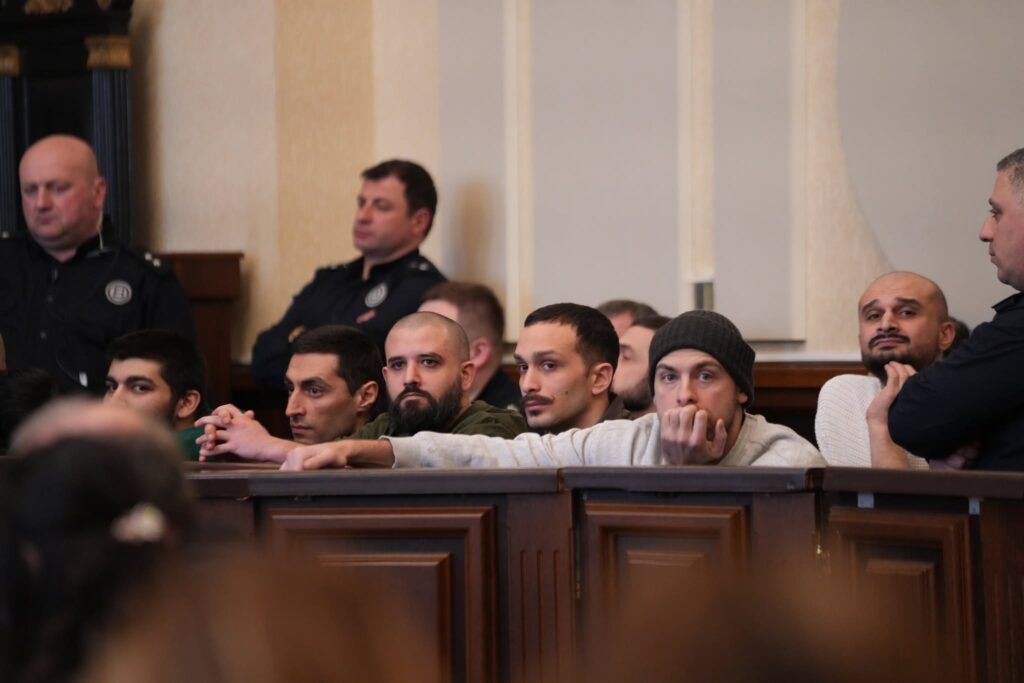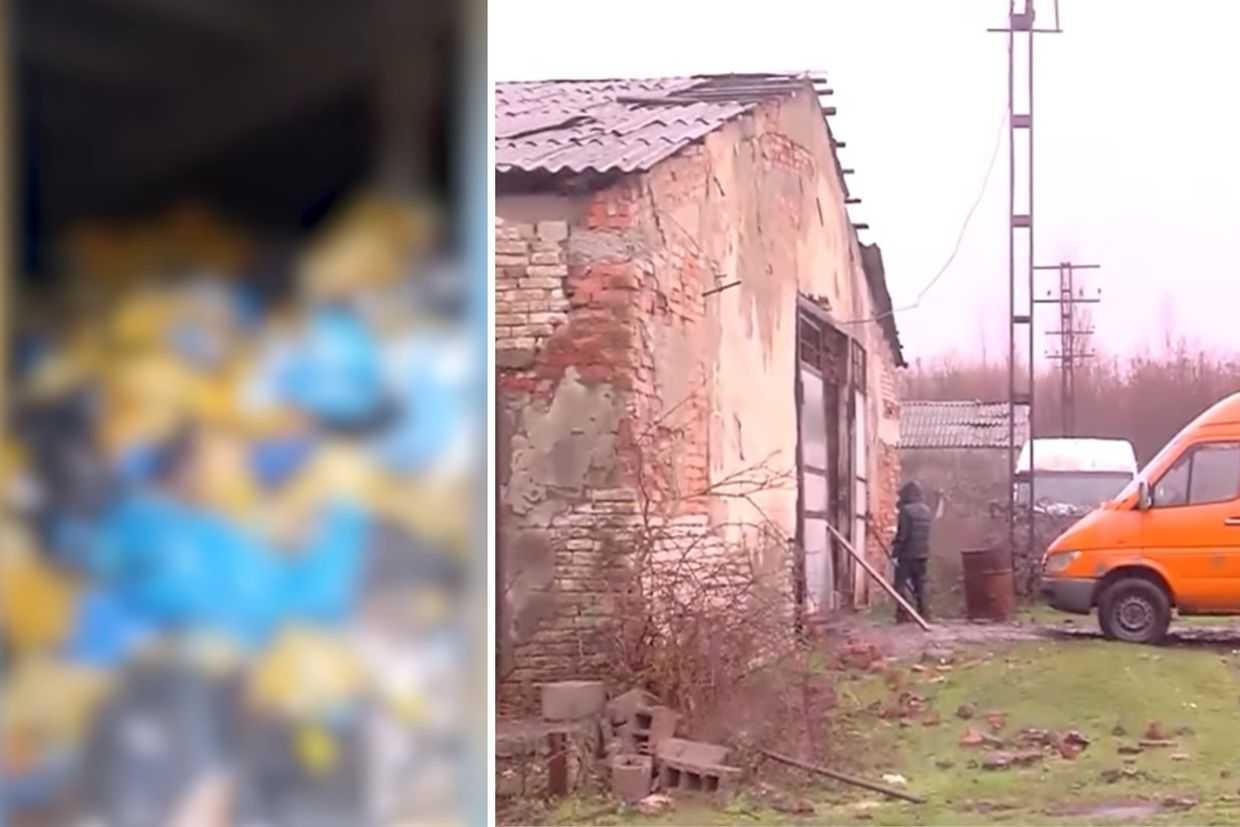
An anti-government protest in Tbilisi was the scene of several tense confrontations between supporters of the ruling Georgian Dream party and pro-EU demonstrators. One of the leaders of the ruling party’s youth wing was seen spitting in the faces of several activists and a journalist, while a verbal altercation took place between a former Georgian Dream MP and protesters.
The protest took place in Tbilisi on Wednesday evening at the opening of Tbilisi Mayor Kakha Kaladze’s local elections campaign headquarters on Melikishvili Street.
Kaladze, who also serves as the ruling party’s secretary-general, is seeking re-election in October’s local vote.
Protesters gathered at the site to oppose the ruling party’s policies and the mass sentencing of people detained in the early stages of the ongoing anti-government demonstrations.
Footage from the protest showed one of the leaders of Georgian Dream’s youth movement, Giorgi Shukvani, accompanied by several men, spitting in the face of activists Magda Mamukashvili, Tamuna Kirtava, and others.
Mamukashvili said he did so after she told him ‘their actions were a betrayal of the country and a service to the Russian regime’.
‘I was stunned for about five seconds. Shortly after, he spat on other women activists’, she added.
‘I just saw the footage of Giorgi Shukvani, the bastard who came out from Kaladze’s campaign [office], spitting on me, and when I demanded an explanation, he spat in my eyes again’, Kirtava posted on Facebook on Thursday, after seeing the footage of the incident.
‘It’s horrible, and I could never have imagined something like this’, she said.
Lika Zakashvili, the editor in chief of Georgian media outlet Publika, said a man accompanying Shukvani had tried to prevent her from recording the incident by striking her hand. After confronting Shukvani, she said he responded by spitting on her.
GD supporters spit and assaulted Editor-in-Chief of Publika, Lika Zakashvili.
— PUBLIKA (@Publika_ge) September 4, 2025
GD supporters sat on activists, hurled insults, and struck Publika editor-in-chief Lika Zakashvili. Later, one spat at her again. Police on site did nothing. pic.twitter.com/udNgA6uphu
Footage from the scene showed police mostly standing by as the incident unfolded.
Mamukashvili said that officers had refused to take her complaints seriously, and that she had made a complaint at a nearby police station.
Zakashvili told OC Media that she had filed a complaint with the Prosecutor General's Office regarding possible interference with her journalistic work, a criminal offence.
The Interior Ministry, Georgian Dream, and the Georgian Dream youth movement all failed to respond when asked about the incident or if an investigation had been opened.
The ‘Natsi titushki orcs’
During the protest, an incident also occurred between protesters and former Georgian Dream MP Beka Odisharia, who was also present at the opening of Kaladze’s campaign headquarters.
As Odisharia exited the building, he was reportedly splashed with water, while protesters shouted and cursed at him. In response, Odisharia cursed at the demonstrators and also directed insults at journalists.
On Thursday, journalists asked Prime Minister Irakli Kobakhidze about the actions of Georgian Dream representatives, but he avoided giving a direct answer.
‘My party is my business. You judge the actions of the Natsi titushki orcs’, he said. Natsi is a term used to describe supporters of the opposition United National Movement party which the government uses more broadly to describe Georgia’s pro-Western opposition groups. Titushki is a term of Ukrainian origin, and refers to government-paid enforcers.
After the protest at the headquarters ended, the demonstrators marched to parliament on Rustaveli Avenue.
The latest wave of protests in Georgia began on 28 November 2024, when Georgian Dream announced the suspension of the country’s EU membership bid. The first phase of demonstrations saw heavy clashes and brutal police violence against protesters and journalists.
Hundreds of people have been detained, with criminal cases launched in over 50 instances. Several protesters have already been convicted and sentenced to years in prison.
Their release — along with calls for new parliamentary elections — has become one of the demonstrators’ central demands.












